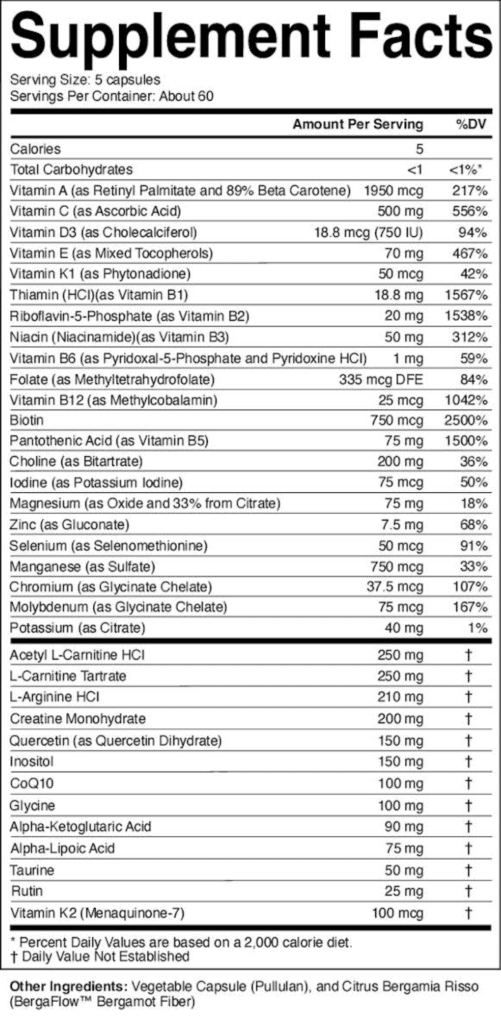$84
VITAMIN K
Vitamin K is an enzyme cofactor for proteins that are needed for blood coagulation, and deficiency can lead to uncontrolled bleeding. Deficiency also can lead to osteoporosis and may promote calcification of arteries. The term “vitamin K” refers to two naturally-occurring compounds, vitamin K1 (phylloquinone) and vitamin K2 (several forms). Vitamin K supplementation generally involves K1, which is the form present in EnergyNeeds®. Gut bacteria convert K1 into the various K2 forms. Side effects are rare at usual doses used in supplementation.
Vitamin K in EnergyNeeds®
Vitamin K1 (phylloquinone) is added to EnergyNeeds® in order to provide a wide basis of nutrition, especially given the important role of vitamin K in blood clotting and calcium utilization. Side effects are unexpected.
Vitamin K refers to a group of similar, fat-soluble, compounds. Vitamin K cannot be manufactured by humans and is thus a true vitamin, obtained exclusively from the diet.
Vitamin K is an enzyme cofactor for proteins that are needed for blood coagulation, in particular, factors II, VII, IX, and X, as well as proteins C and S. Vitamin K also assists in controlling the binding of calcium in bones and other tissues.
Vitamin K deficiency can develop in certain conditions, especially in severe gastrointestinal disease. In vitamin K deficiency, blood coagulation is impaired, and uncontrolled bleeding occurs. Additionally, deficiency can lead to osteoporosis (weakened bones), and may promote calcification of arteries and other soft tissues.
Vitamin K is often supplemented in newborns, in individuals with liver or intestinal disease, and to reverse the blood thinning effects of the drug warfarin.
The term “vitamin K” refers to two naturally-occurring compounds, vitamin K1 (phylloquinone) and vitamin K2 (several forms of menaquinone, especially types 4 (K2-4) and 7 (K2-7). Of note, The U.S. Institute of Medicine (IOM) does not distinguish between K1 and K2, and both are counted as vitamin K. Vitamin K supplementation generally involves K1 (phylloquinone), which is the form present in EnergyNeeds®. Humans can convert K1 to K2-4. Gut bacteria can convert K1 into K2-4 and other forms, including K2-7. Vitamin K2-7 is found in some fermented and animal-based products, especially natto and egg yolks. Vitamin K2-7 can be supplemented, but is uncommon due to price.
Despite being fat soluble, vitamin K is broken down very quickly, and rarely reaches toxic levels even with high intakes. Side effects are rare at usual doses used in supplementation.
Laboratory testing can reveal the presence of a deficiency of this nutrient, but is generally not likely to have clinically utility.
How and Why Vitamin K Is Used in EnergyNeeds®
Vitamin K is added to EnergyNeeds® in both the K1 and K2-7 forms in order to provide a wide basis of nutrition, particularly in regard to the importance of vitamin K for the health of the blood, blood vessels, bone, and brain. While definitive large double-blind studies are few, the studies performed to date, the clinical experience of many physicians, and the generally benign nature of vitamin K supplementation, have convinced many experts to offer supplementation to their patients, especially with the more bioactive and longer lasting form of K2-7. Side effects are rare at doses in EnergyNeeds®, although those on blood thinners should first consult their physician.
Order EnergyNeeds®Today
Formulations










